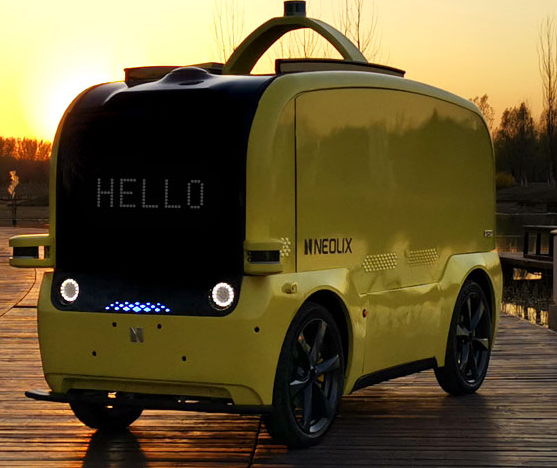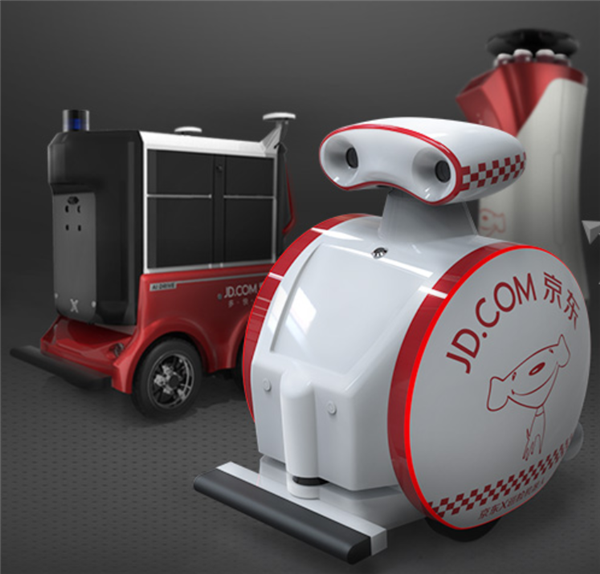How autonomous driving tech is being used in anti-coronavirus combat
Shanghai (Gasgoo)- China, one of the leading and largest technical innovation countries in the world, is fighting against the deadly novel coronavirus epidemic in full swing. China's tech giants like Baidu, JD.com and other tech startups are also using their tools to handle the virus infection, notably with the usage of autonomous driving technology.
On Feb. 10, Baidu Apollo, the open-source autonomous driving tech platform of Baidu, announced it would open up low-speed minicar kits and autonomous driving cloud services to companies that have joined the anti-coronavirus combat without charge.
The low-speed minicar kits, containing the solutions of hardware & software and corresponding services, will be applied as an autonomous driving tool in the vehicles used to combat the epidemic. Baidu said it will align the working needs with the technology for companies, and offer them supply chain resources. These services are all free.
To fight against the epidemic, autonomous vehicle companies are allowed to get the free Apollo-based cloud services, including high-definition map, simulation & emulation, vehicle calibration, data annotation, sensor calibration, remote control, cloud storage/computing, etc.

(Photo source: Neolix)
Up until now, many Apollo-backed companies have put their products into the fight. For instance, Qingdao Wuniu (in Chinese), a Qingdao-based agricultural robot developer, have contributed roughly 30 disinfection robots to such hospitals as the Affiliated Hospital of Qingdao University, People's Hospital of Rizhao and Shandong Provincial Chest Hospital. Besides, Neolix, a Chinese autonomous driving startup, sent its self-driving logistics cars to Wuhan, the epicenter of the virus outbreak, and Beijing in early Feb. Meanwhile, the driverless disinfection car designed and produced by IdriverPlus also arrived in Beijing's segregated areas.
Autonomous vehicles do play a useful role in the anti-virus battle. They are usually used to deliver goods in infected areas, and disinfect hospitals, effectively minimizing person-to-person transmission and alleviating the shortage of medical staff. Additionally, the governmental traffic control measures also create a smoother road environment for self-driving vehicles to pass.
Apart from opening up platform resources, Baidu Apollo will assist partners with R&D of anti-epidemic vehicles by offering capital supports.

(Photo source: JD-X)
Chinese e-commerce giant JD.com also took part in the battle with its unmanned vehicles. On Feb. 6, JD's autonomous delivery robot successfully completed its first delivery in Wuhan. Departing from JD's Renhe logistics station, the robot delivered medical supplies to the No.9 Hospital of Wuhan.
According to a local media report, JD-X, the logistics and automation lab of JD Logistics, will draw digital maps for the delivery robots dispatched to Wuhan.
What's more, JD Logistics will open up its Level 4 autonomous driving technology and kits, and offer technical supports and upgrade services to its partner robot developers, according to an executive at JD-X.
Other companies, including Pudu Tec, GOSUNCN, Saite Robot, Unity Drive and Go Further. AI, have put forth similar efforts to fight against the virus. Of them, Pudu Tec has deployed delivery robots in over 40 hospitals and quarantined spots in such cities as Wuhan, Huanggang, Chibi, Wenzhou, Shenzhen and Guangzhou. They are used to fetch meals, drugs and water for infected or segregated people.
The 5G-enable patrol robot self-developed by GOSUNCN is capable of measuring body temperature as far as 5 meters, and recognize whether a people put on a mask.
Gasgoo not only offers timely news and profound insight about China auto industry, but also help with business connection and expansion for suppliers and purchasers via multiple channels and methods. Buyer service:buyer-support@gasgoo.comSeller Service:seller-support@gasgoo.com







